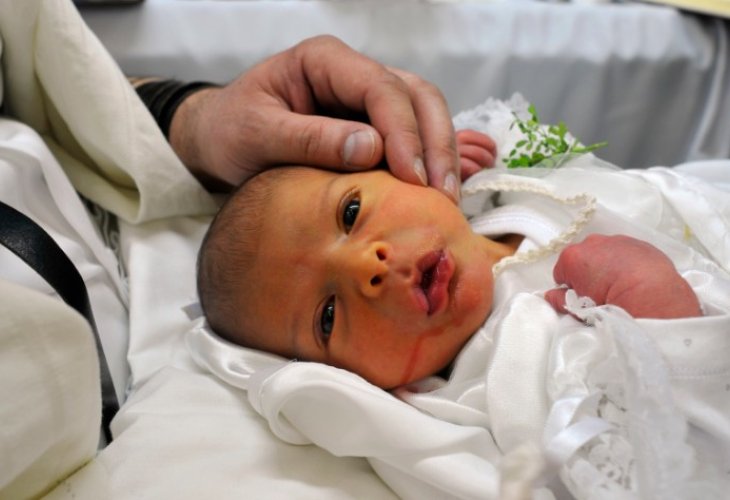Faith
The Spiritual Meaning of Torah and Mitzvot in This World and the Next
Why circumcision is performed at eight days old — A Torah perspective on compassion, identity, and Divine wisdom
 (Photo: Flash 90)
(Photo: Flash 90)Zehava asks: “Hello. My friend is a kindhearted woman who has not yet returned to religious observance and wonders how it is that Judaism seems to ignore the pain caused to a baby during circumcision. The medical explanation doesn’t satisfy her. I’d appreciate your response, as always.”
* * *
Hello Zehava, and thank you for your question. With God’s help, may you merit to strengthen your friend.
Brit milah (circumcision) is a very serious mitzvah in the Torah. God commanded the Jewish people: “When he is eight days old, every male among you throughout your generations shall be circumcised… And an uncircumcised male who is not circumcised in the flesh of his foreskin — that soul shall be cut off from his people; he has broken My covenant” (Genesis 17:9–14).
A Jew who does not perform circumcision transgresses a severe Torah commandment whose punishment is karet (spiritual excision), and our Sages taught that he has no share in the World to Come. The fact that Jews throughout history were willing to die for their Judaism — and even today, countless traditional Jews would accept martyrdom rather than convert to another religion — demonstrates the immense value Torah and mitzvot hold for the Jewish people. Even secular Jews should observe the mitzva of brit milah, as it is essential to their Jewish identity.
Brit milah has united Jews across cultures and centuries. It is a historical bond linking all Jews, wherever and whenever they have lived, back to the first patriarch, Abraham.
Maimonides explained (Guide for the Perplexed III:49) that this act is not something one does lightly or without conviction, as it demonstrates true faith. It is also a covenantal sign that unites the Jewish people physically and spiritually, as Abraham’s covenant was founded on faith in God’s oneness: “To be a God to you and to your descendants after you” (Genesis 17).
 (Photo: Flash 90)
(Photo: Flash 90)Why, though, is it commanded at precisely eight days old? Even with the known health benefit — clotting factors peak on the eighth day — this alone doesn’t explain it. Why not wait until the child is older, as Muslims do at age 13? Maimonides provides three main reasons:
Certainty of fulfillment – If delayed until maturity, many might refuse out of fear or squeamishness.
Less pain and no traumatic anticipation – Infants do not have the psychological dread that older children or adults experience, and their skin is softer, so the physical pain is less intense.
Easier for parents – Emotional attachment deepens as the child grows; performing the circumcision very early spares both parents and child from a more emotionally difficult experience later.
While infants can feel pain, research shows they process it differently. Some studies suggest that injections can cause more distress than circumcision. Infants cry intensely even over trivial discomforts such as hunger, a wet diaper, or being separated briefly from their mother. I once personally witnessed a brit milah in Bnei Brak where the baby cried beforehand, was given a pacifier, calmed completely, and did not cry at all during the circumcision, only to cry loudly again when the pacifier was removed for feeding. Within moments, he was calm and content.
From experience, babies often stop crying seconds after the procedure, returning to normal behavior. There is no evidence of lasting trauma. Waiting until the child is older would make the process far more physically and emotionally difficult for everyone involved.
King David wrote: “The judgments of the Lord are true, they are righteous altogether; more desirable than gold, and sweeter than honey” (Psalms 19:10–11).
Even what may appear harsh at first glance is, in reality, guided by profound mercy and understanding, for the newborn and the parents. Human reason is limited, but God sees the full picture: “Man sees what is before his eyes, but the Lord sees into the heart” (Samuel I, 16:7). Brit milah is another proof of the Torah’s truth and wisdom.

